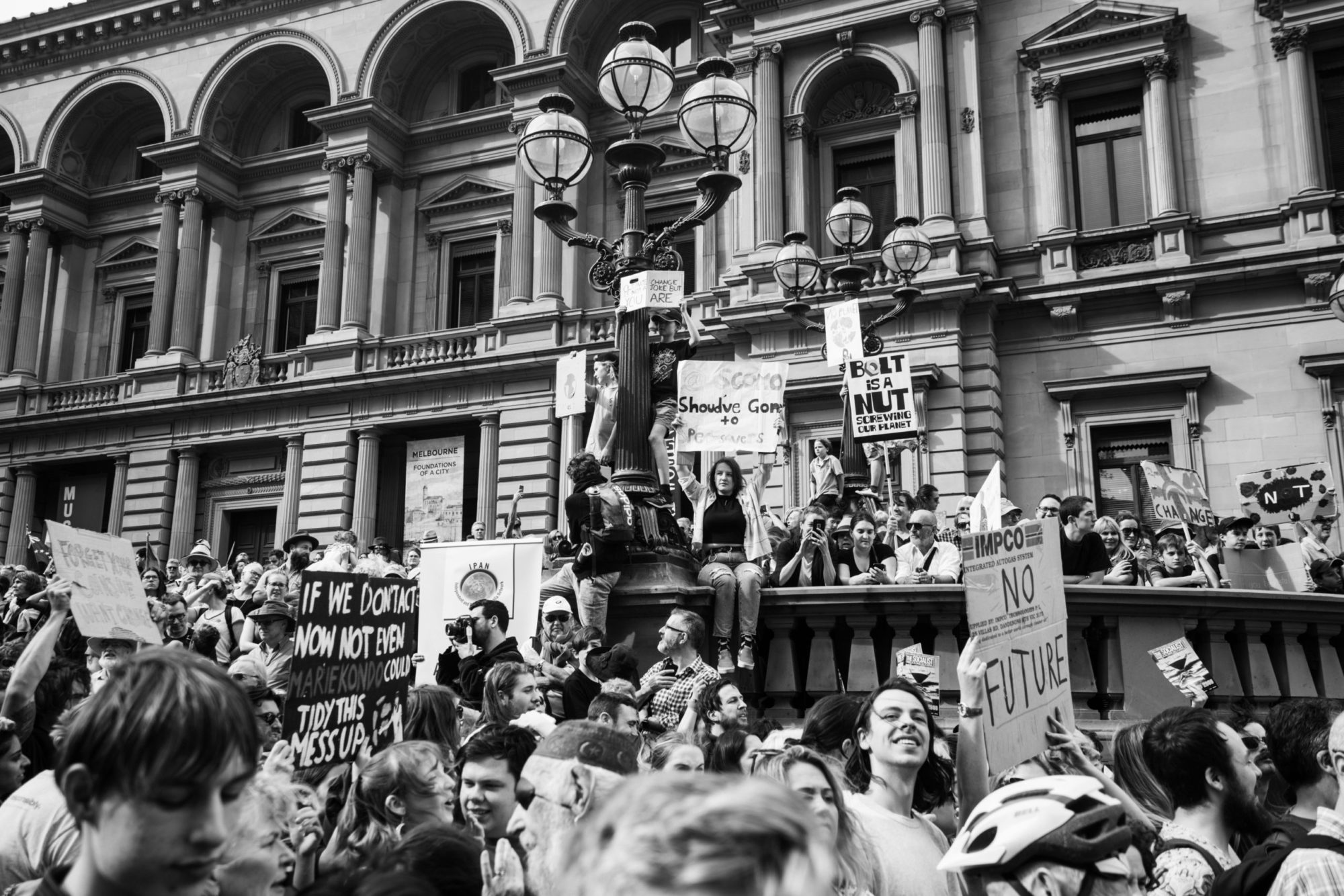The William T. Grant Foundation is committed to the stance that social science research has an important role to play in identifying strategies to reduce inequality. Since 2014, we have funded almost 60 studies that build, test, and increase understanding of approaches to reducing inequality among young people ages 5 to 25 in the United States. While this body of research has examined many promising strategies for ameliorating the effects of inequality on young people, too few studies examine ways to target the macro-structural roots of inequality. In part, the lack of focus on strategies that address these roots is due to the inherent challenge in shifting structures—but imagine how the landscape of youth outcomes might look if we identified ways to reduce Black-White wealth inequality or to dislodge the systemic racism that undergirds racially segregated neighborhoods and schools.
Throughout American history, social movements have played a critical role in shifting structures like racism, resulting in new federal policies (Andrews and Gaby 2015) and altered business practices (Luders 2006); they are one means through which power hierarchies that support inequality can be disrupted. Thus, we are interested in funding studies that examine social movements as a strategy to target macro-structural inequalities that affect youth outcomes. Such studies might focus on youth-led movements or on adult-led movements that affect youth, but the central focus should examine the conditions or mechanisms through which movements can reduce inequality in youth outcomes.
…imagine how the landscape of youth outcomes might look if we identified ways to reduce Black-White wealth inequality or to dislodge the systemic racism that undergirds racially segregated neighborhoods and schools.
Our interest in research to reduce inequality means we are interested in research on ways to improve the practice of organizing and/or movement building. One barometer of success is if the research is viewed by organizers as practical and useful for improving their work. Social scientists have produced a substantial body of research on social movement emergence, development, decline, and outcomes. This literature, however, is not typically addressed to, nor does it generally inform, those who build and support movement organizing. While some scholars are speaking to and working with organizers, as well as offering lessons from the literature for how to build movements and change institutions (Ganz 2010; Han and Barnett-Loro 2018; Pastor and Ortiz 2009), this approach is not the norm.
We seek proposals that are built on a strong framework that demonstrates understanding of when, how, and under what conditions social movements can lead to reduced inequality for youth. But while social movement studies may inform the framework, we encourage applicants to take existing work a step further to empirically study how organizers can successfully create the conditions and practices that challenge the structures of inequality. In accord with our criteria, applicants should identify the dimension(s) of youth inequality a movement is intended to address; the Foundation is especially interested in research to reduce inequality on the basis of race, ethnicity, economic standing, language minority status, or immigrant origin. Applicants do not need to assess changes in youth outcomes but should offer a convincing theoretical and empirical rationale for how the changes engendered by organizing would lead to creating the conditions for reduced youth inequality. Proposals should provide clear conceptualizations of the intended outcomes of organizing. For example, are outcomes intended to address distributional or relational inequality? What would these outcomes look like? Proposals should also offer a strong research design and analysis plan for assessing these outcomes. As always, the Foundation is open to qualitative, quantitative, and mixed methods approaches.
We welcome applications on this topic under our Research Grants on Reducing Inequality and William T. Grant Scholars programs. We also encourage applicants to consider our Institutional Challenge Grant program, through which university researchers can build research-practice partnerships with social movement organizations or networks. As we continue to explore other types of research that targets ways of disrupting power hierarchies—such studies of how to shift elite decision making or governance structures—we welcome your ideas to improve our thinking as well as your applications to expand the scope of what we know about how to reduce inequality among youth in the United States.
REFERENCES:
Andrews, K., & Gaby, S. (2015). Local protest and federal policy: The impact of the civil rights movement on the 1964 Civil Rights Act. Sociological Forum 30: 509-527.
Ganz, M. (2010). Leading change: Leadership, organizations, and social movements. In M. Norhia & R. Khurana (Eds.), The handbook of leadership theory and practice (pp. 509-550). Danvers: Harvard Business School Press. Retrieved from: http://marshallganz.usmblogs.com/files/2012/08/Chapter-19-Leading-Change-Leadership-Organization-and-Social-Movements.pdf.
Hahrie, H., & Barnett-Loro, C. (2018). To support a stronger climate movement, focus research on building collective power. Frontiers in Communication 3(55): 1-5. Retrieved from: https://climateadvocacylab.org/system/files/Frontiers%20Han%20and%20Barnett-Loro.pdf.
Luders, J. (2006). The economics of movement success: Business responses to civil rights mobilization. American Journal of Sociology 111(4): 963-998.
Pastor, M., & Ortiz, R. (2009). Making change: How social movements work – and how to support them. Los Angeles, CA: Program for Environmental and Regional Equity, University of Southern California. Retrieved from: https://dornsife.usc.edu/pere/making-change/.




